| Horace
Campbell, a professor of Political Science at Syracuse University
who gave us Rasta
and Resistance: From Marcus Garvey to Walter Rodney and Reclaiming
Zimbabwe: The Exhaustion of the Patriarchal Model of Liberation
and Reclaiming
Zimbabwe: The Exhaustion of the Patriarchal Model of Liberation ,
has been cutting some more edges in the thick maze
of uncertainty that now surrounds the earth’s people in
the political sphere and its extensions. Campbell approaches
this formidable task through Barack
Obama and Twenty-first Century Politics: A Revolutionary
Moment in the USA ,
has been cutting some more edges in the thick maze
of uncertainty that now surrounds the earth’s people in
the political sphere and its extensions. Campbell approaches
this formidable task through Barack
Obama and Twenty-first Century Politics: A Revolutionary
Moment in the USA . .
The
book begins by defining examples of a number of “revolutionary
moments,” naming among other moments, those preceding the
US, Haitian and Cuban revolutions. His definition of a revolutionary
moment is the backdrop against which the setting of his
arguments can be evaluated. Campbell views all of these
revolutionary processes as arising “out of moments when
the ideas supporting or propping up the old order had become
unsustainable” (pg 3).
In
this book of multi-level learning, Campbell goes on to distinguish
the revolutionary moment from the “maturation of the revolutionary
process” which begins “in the womb of the old society”.
The maturation seems to be a process which must meet the
point of a “critical break from the old when then ideas,
the organization, and leadership of the new rising forces
can decisively remove the old order from political and social
power.”
From
here he passes on to the pre-political in the training of
Barack Obama, to which he gives a unique explanation, differing
with some less unbiased scholars, a range of whom either
credit Obama with no exposure or interest in transformative ideas
or find him to be a flaming, white-hating radical in disguise.
In “Confronting
Racism and Sexism in the US Politics”, the book then devotes
its pages to the issue of political organization describing
with instructive care how the grassroots organization of
the people in 2008 confronted the Democratic Party machine.
Campbell passes next to the rise of fractal wisdom and fractal
phenomena in general. Next, he examines the past and speculates
on the future of the Democratic Convention with keen observations
on the conflicts and resolutions at the Denver convention
in 2008. Campbell describes the “ground operation for victory”
in a very informed chapter titled ”Beyond Messiahs” and
ends by marrying the concept of Ubuntu with the concept
of 21st century revolution. The book takes on orthodoxy
as we know it, and in fact the sprit of orthodoxy itself,
not only in political and social thought but in spirituality,
natural science and gender.

The
book is reader friendly, although written by a political
scientist. It is perhaps written as a duty to place some
notions on record in a methodical way for the general reader,
as well as for students, the writer’s urgent sense of an
important conjecture of various forces, the outcome of the
standard texts and the silences of the history of the USA.
The
book is also an informative beginning for people who do
not know much of the internal history and meaning of the
Democratic Party. Campbell traverses the relevant political
experience, revisits the philosophical experience, as well
as the influence of natural science on the social sciences
historically. He notes the linear Newtonian physics which
served its day and the link between it and Enlightenment
philosophy largely influenced by the science. The book draws
attention to the fact that quantum politics and fractal
thinking represent a break with the linearity, hierarchy,
and dominance undergirding Newtownian conceptions of reality. Linear
models of domination manifest themselves in any hierarchy
of human over human (racial, gendered, class), as well as
human domination over nature.
He
welcomes the freshness of Albert Einstein and attempts to
demonstrate the new path taken by science since the light
of relativity exposed the entrapment and over- rigidity
of linear concepts of the universe and of matter and energy.
It is here Campbell explains that those enlightenment influences
would not adequately explain the rise of Obama, described
as Black or African American not only to a place on the
ballot, or as a contender in the primaries, but to the presidency
of the USA. Many have troubled whether or not this outcome
was revolutionary or whether it was some indication of revolutionary
readiness. The author is careful not to hype it beyond its
significance and barely succeeds in resisting the overpowering
euphoria. The spectacular and astonishing outcome attracted
many active minds all over the world.
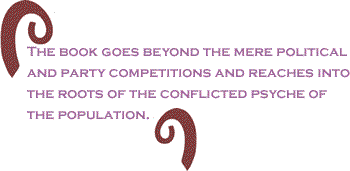
In
February 2009, Wole Soyinka, Nigerian Nobel Laureate, described
the election in San Diego as “history in a remedial spin”.
He speculated that some might try to ‘bring about his failure
and infer the failure of a race’.
Campbell
seems content to underline the historic significance of
the event, but he is more concerned with demonstrating the
nature of the forces at work and inviting the study of not
only of their origins but also of their potential. The book
itself is evidence that he does not underestimate the developments.
The
book also alerts the non-scientific community and readers
to the significance of quantum physics and to the need to
ponder the new knowledge that it has permitted. This is
not a diversion. Campbell shows the relevance, and the shock
to the laidback traditional mind of converging technologies
and their implications. Not ready to break the connection
between natural science and the paths of social transformation,
he seems to argue for timely deductions by social
scientists from the significance of Quantum physics and
the convergence of biotechnology, cognitive technology,
information technology and nano technology.
Campbell
goes on to explain that nano technology involves “moving
individual atoms and molecules, building machines using
molecular building blocks, and creating a new kind of materials
and structures from the bottom up. Science and technology
on the scale of a nanometer is revolutionary. It could change
the way almost everything works – from medicines to computers,
from clothing to skyscrapers – and lead to new products
not yet imagined.”
He
cites expert opinion that the projection of this technology
is towards the ”crossover to the tipping point where solar
energy will be less expensive than fossil fuels in almost
every situation is within in five years” ( pg 14 ).
Eventually
(page 255) he offers a practical, citizen – friendly tool
by reminding us that “revolutionary moments are therefore
precarious unpredictable. There are many zigs and zags,
twists and turns.”
“Quantum
politics assists us in understanding the unpredictable,
contradictory nature of people and social phenomena. It
alerts us to political and economic philosophies that are
more appropriate to the realities of the 21st century where
separation and compartmentalization have no meaning.
Quantum
politics holds many possibilities in a fast changing society
with the innovative capabilities of the young innovative
capacities of the young - the young who, like women have
always attracted unfairly and unjustly attracted offers
of guidance which they hardly need more than the offerers.
As
against the monist physical scientists, Campbell favors
Einstein who allows for the factor of human spirituality.
More important, he poses certain implications and seems
to make a link between fractals, quantum physics and the
politics of the 21st century. Fundamentally, when Obama
elected to run for president and, through what is now recognized
as a new fractal network in rivalry with “the machine, was
able to energize the best part of a nation with his undoubted
and effective Ubuntu energies or at least establish a parallel
between it and fractal politics in its various manifestations
at the social human level”. We are therefore left to ponder
the question: if quantum society is the dialectical opposite
or consequence of the classical Newtonian physics, expressed
on the eve of its collapse in the fascination with mega
trends, posing a threat to such trends in a matter of decades,
how will the Society obtain resources to pay for the humane
transition from the economic domain of the collapsing mega
trends to a new human scale and nature friendly economy
very likely dominated by the kindred of nano technological
structures?

Campbell
sees Obama, to whom he is not at all hostile, as dithering
and seeking to negotiate with oppressive forces. This issue
is being raised in a timely manner.
Campbell
has found optimism to be a positive force, as it really
is. Mere optimism, however, is short-sighted. Bush had deserved
something more severe than merely leaving office without
a censure although peace poets in some parts of the country
and mavericks of the left, like Dennis Kucinich and Cynthia
McKinney, were demanding impeachment, which, if not malicious
can be in keeping with healing. An awareness is needed of
the very deep abyss into which George W. Bush’s policies
and the activities of the financial and military industrial
prison complex had sunk the country. For some reason or
other, whether through political politeness or through lack
of relevant information, that is to say ignorance, the Obama
advisers failed to dramatize the crisis and left the expectant
millions that had effected the electoral change in a cloud
of innocent and uncritical anticipation.
Campbell
states “Barack Obama inherited the military infrastructure
for permanent war and it was naïveté on the part of some
in the peace movement that made them believe that he could,
as president, change the militaristic direction without
the power of a mobilized grassroots movement.” It goes
without saying that, as Campbell notes, “a revolution would
be required to bring the Pentagon back under democratic
control.” Quoting from Bill Fletcher,- in the Black
Commentator, the book call on the progressive forces
not to look to Obama and his administration for answers
but to a remobilized progressive movement. . Campbell
agrees and adds that the movement needs to use as its reference
the call of Martin Luther King Jr for a “ revolution of
values.”
He
credits the peace movement with knowledge of the real implications
of the permanent war plans, and claims that the movement
has known that “hope must be at the forefront in creating
spaces for nonviolence and peaceful change”. ( page 257)
Implied
here is a criticism of all those who supported Obama’s decision
to engage the presidency and also did so with unreasonable
expectations of winning the establishment both inside the
party and elsewhere. The victory over the party establishment,
more correctly styled by Campbell as “the machine”, was
a historic victory which instead of softening the more pernicious
establishment, the military and its client bureaucracy,
very likely stiffened it. Even in Venezuela with its less
calcified establishment an elected president has been encountering
persistent resistance. The US electorate by all standards
did itself proud in giving Obama a majority from all its
“diverse ” sections. Unfortunately, the existing state of
the nation posed equally compelling problems of sheer survival
with their own immediate and compelling urgency and ways
of assaulting the people outside of the  corridors
of economic and political power. The dominant class of
the economy, despite its many frauds and failures, had safeguarded
its personnel in financial bunkers in which to wait out
the siege. The president, genuine in his healing mission,
had relied heavily on the Ubuntu of bipartisanship and,
it will be remembered, often displeased the democratic base
by appearing to rely too heavily on it. This reliance on
bipartisanship, which I would classify as one of Obama’s
expressions of Ubuntu as a governmental culture, meant slower
movement on every front with the possible exception of military
and in some cases no movement at all. It is possible that
many of the reforms which the masses of workers, housewives,
middle class and citizens desired, business operatives and
home owners would have been readily attainable in the
time anticipated if the Republicans, bitter from their
defeat by an outsider at that, had been disposed to agree
to or to negotiate an acceptable bipartisanship. Had it
been possible for a body of Republicans to respond positively
on important issues other than military to the President’s
bipartisanship on the centers of economic resistance, it
might have been somewhat less inflexible. This is, however,
like saying that if the President had begun by recruiting
the tough economic interests these might have encouraged
support at the level of the Senate and the House of Representatives. corridors
of economic and political power. The dominant class of
the economy, despite its many frauds and failures, had safeguarded
its personnel in financial bunkers in which to wait out
the siege. The president, genuine in his healing mission,
had relied heavily on the Ubuntu of bipartisanship and,
it will be remembered, often displeased the democratic base
by appearing to rely too heavily on it. This reliance on
bipartisanship, which I would classify as one of Obama’s
expressions of Ubuntu as a governmental culture, meant slower
movement on every front with the possible exception of military
and in some cases no movement at all. It is possible that
many of the reforms which the masses of workers, housewives,
middle class and citizens desired, business operatives and
home owners would have been readily attainable in the
time anticipated if the Republicans, bitter from their
defeat by an outsider at that, had been disposed to agree
to or to negotiate an acceptable bipartisanship. Had it
been possible for a body of Republicans to respond positively
on important issues other than military to the President’s
bipartisanship on the centers of economic resistance, it
might have been somewhat less inflexible. This is, however,
like saying that if the President had begun by recruiting
the tough economic interests these might have encouraged
support at the level of the Senate and the House of Representatives.
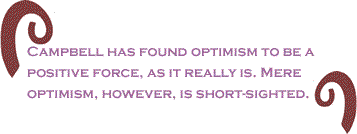
A
great merit of the book is demystifying the internal working
of the Democratic Party in historical phases. Even more
important is the description of the new processes which
overcame the old. The Clintons had inherited the party machine
and though they had modified it or allowed it to be modified
to include an African American largely client section in
New York, with a number of prominent African-American leaders
who were loyal to them and regarded them as the most possible
racially empowering, these assumptions crumbled or proved
unreliable under the impact of the new bottom up organization,
which Campbell calls the fractal organizing. He thanks
Sreeram Chaulia, his Asian colleague, for insisting on an
elaboration of this fractal phenomenon. In fact, it was
a rewarding pursuit. Small groups, as has been well known
to industrial engineers for decades now, have the possibility
of empowering individual members, eliciting ideas and building
confidence which only then have to be multiplied in a purposeful
network without limit. With a clear political objective
in mind it is easy to accept the testimony of the power
of small, focused but self -articulating groups not endorsing
central directives.
Over
and above its research and analysis about the Obama campaign,
the political “River” (Vincent Harding ) of US emancipatory
politics brought close to an estuary, its revelation on
the part of fractals in the wider political universe, a
resurrected wisdom from around the 1960s that had played
a part in many places, the book is really about Ubuntu.
This is a worldview and practice that may be traced to South
Africa on which Africans of good standing, Desmond Tutu,
Mandela, as well as scholars have pronounced.
Archbishop
Desmond Tutu is quoted as saying “Ubuntu is very difficult
to render in a Western language. It is to say ‘My humanity
is caught up, is inextricably bound up in yours’”.
Whether
he knew it or not, Obama's campaign for president was extremely
controversial, new, unusual and revolutionary. He was a
biracial candidate, and he openly proclaimed his biracial
origin. He could simply have adopted the mantle of African
American. He did not. He spoke of his two human parents
with equal respect. He called for “a more perfect union”.
He did not indict whiteness or white mindedness in any marked
degree. He took extraordinary risks. When Reverend Jeremiah
Wright introduced into the debate some of the known atrocities
of the USA attributing them historically to the whites in
control, Obama countered with "that is not where America
is.” He put forward a perspective, using his experience
in Illinois, of a society breaking down politically into
a convergence of variously originated citizens united by
similar needs for social goods, services and similar concerns
about the present and the future. For those months, it seemed
that the whole nation had set aside its plethora of separate
class, ethnic and gender agendas and looked for hope and
promise into a common pool of social service to be promoted
and assured by an enlightened and accountable government.
Campbell witnessed the unfolding of this necessary optimism
throughout the campaign and its decisive notional outcome
at Denver where there was a fight to the finish.
Campbell’s
boldness and “audacity” in offering the West an African
philosophy and mode of healing is typical. He is in a strong
position to do so. Well grounded in the enlightenment philosophies
of all trends and in their periodic strengths and their
long term purblind vision, he seems to believe that basic
African egalitarianism springs from deep spirituality which
Africans themselves take in their stride and may not consciously
value. When the situation began to change in the care of
African scholars, who in the modern world need a dual education,
he at once became conscious about Ubuntu in the place where
it dared to proclaim itself, South Africa. Ubuntu, however,
is no more African than the circulation of the blood is
European, Asian or Mayan. If anything it may be the feminine
aspect of the human polarity.
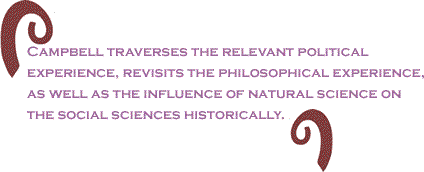
Citizens
of the United States of America, indulgently called “Americans”
can release themselves from either guilt or sense of shame
by an understanding of the force that dehumanized the majority
of citizens on all sides of the racial roadblocks.
The
book goes beyond the mere political and party competitions
and reaches into the roots of the conflicted psyche of the
population. Building on scholarship and daring to raise
to life those buried by the mainstream scholarly tradition,
Ella Baker comes to life as a serious architect of the ground
plans of liberation organization. Baker, whose “mantra was
that those organizing must work with people where they are”,
and “ called on young people to think of transforming the
entire social structure ”.
Campbell
resurrects one of her contemporaries, Bob Moses, (the Algebra
Project) who was active in the Civil Rights Movement and
never ceases to sing the praises of the women who mentored
them. Furthermore, he proffers a new approach to the Civil
War informed by a more varied and vigorous scholarship which
includes perceptive scholars regardless of race. The double
mindedness and soul wrenching about letting loose millions
of Africans who had been forcibly kept enslaved and dehumanized
in a necessary study to find a path. He shows the importance
of an elected official Benjamin Tillman of South Carolina
who was elected again and again ending in the Senate where
he lent his influence and support to the ideological bolstering
of the anti emancipation forces.
Benjamin
Tillman is fingered for sponsoring The Clansmen,
a celebratory work on the KKK, and the film it inspired,
The Birth of a Nation by D.W Griffith, which
Campbell says marked a notable leap in the advance of the
forces arraigned against human freedom. A welcome departure
in the book is Campbell’s adoption of the findings of a
series of feminist scholars in revealing the hidden side
of racism and its sexualized aggression. He convincingly
reveals the KKK as essentially a masculinist organization
that castrated Black males and raped black females under
the directive of” splitting” them.
This
gratifying adoption of a feminist vision as well as older
womanist perceptions from Harriet Tubman and Sojourner Truth
show their relevance, even in current times, if we are truly
to acknowledge the profundity of Shirley Sherrod, can only
enrich the analysis and the possibility of a more perfect
union.
This
book also brings out the depth of Campbell’s ideological
deepening and maturing. He has long been aware of the limitations
and unsustainably of Newtonian physics, as has the scientific
world. This time he de-mystifies the link between the findings
of natural science and human consciousness. In doing so,
he proposes a link to human political organization.
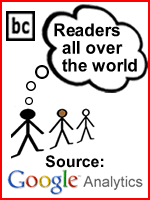 Campbell,
a liberated Jamaican at base, a soldier of peace and human
liberation and a practicing Pan Africanist, has no difficulty
treating Obama’s sojourn in Reverend Wrights’ church as
an incubation in Black Liberation Theology which, like other
variants, should be an agency of human liberation and not
imprisonment. It is known that the media attempted to represent
Obama through the preachings of his pastor. Obama was expected
to stage a walkout when themes did not fit with his personal
conscience while simultaneously encountering charges of
wishing to politicize the church. In noting that Obama disappointed
large sections of his supporting electorate by failing to
deliver an appropriate critique of the capitalist system
after it had exposed itself through the collapse of Bear
Stearns, Campbell perceives that it was his decision to
deal with race and healing in response to Wrights that kept
him from a manifesto regarding the dominant economic system,
capitalism. A willing and ready candidate would have found
it convenient to discuss race in the context of the economy,
race itself being “an economic factor.” Campbell,
a liberated Jamaican at base, a soldier of peace and human
liberation and a practicing Pan Africanist, has no difficulty
treating Obama’s sojourn in Reverend Wrights’ church as
an incubation in Black Liberation Theology which, like other
variants, should be an agency of human liberation and not
imprisonment. It is known that the media attempted to represent
Obama through the preachings of his pastor. Obama was expected
to stage a walkout when themes did not fit with his personal
conscience while simultaneously encountering charges of
wishing to politicize the church. In noting that Obama disappointed
large sections of his supporting electorate by failing to
deliver an appropriate critique of the capitalist system
after it had exposed itself through the collapse of Bear
Stearns, Campbell perceives that it was his decision to
deal with race and healing in response to Wrights that kept
him from a manifesto regarding the dominant economic system,
capitalism. A willing and ready candidate would have found
it convenient to discuss race in the context of the economy,
race itself being “an economic factor.”
As
indicated earlier, Campbell’s over-arching concern is with
Ubuntu and its effectiveness in human healing and transformation
after peace and transformation. He presents arguments of
the “fractal” forms of existence Ubuntu in widespread African
societies. His attraction to Obama then seems to be a purveyor
of historic Ubuntu rather than to a perceived radical race
redeeming an African American candidate. In his last chapters,
Campbell returns to these themes. He leaves the reader impressed
with the need for nonviolent change and reiterates that
a revolution is not a linear process, but is subject to
liftings, fallings, setbacks, leaps and may entail chaos
rather than a Newtonian determinism.
The
revolutionary then is optimistic, the acid test being optimism
in the face of known obstacles, all these being challenges
to the increasingly better prepared revolutionary movement.
Campbell’s
measured but passionate and motivational strictures against
the new administration may be seized on to reflect on the
high expectations of the campaign process, which certainly
did not aim only at an electoral victory, but at the change
that was the mantra and the energy of the momentum. He repeats
that Obama is not a revolutionary, but a good and well intentioned
man entrapped in liberal illusions of class behavior.
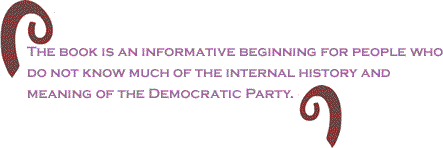
But
what if Obama had been a revolutionary, without a revolutionary
movement, merely caught up in a political crisis attended
by a deepening economic crisis in the world's largest and
most alienated economy? It must dawn on us that the institutions
that own, manage and service commercial property, or capitalist
property including the military rather than individuals
are a stubborn determinant of change which human capacity
is destined to overcome or go into global decline. The major
absent factor is education, but this must mean not merely
schooling, but the experience of struggle, ethnic reconciliation
and all the influences of nurture. Among those influences
he lists the arts, and finds the immortal creation, “we
are the world, we are the children”, one of the inspiring
expressions of the ubuntu spirit.
BlackCommentator.com
Guest Commentator Eusi Kwayana is a Pan Africanist and
one of the Caribbean’s most distinguished political
activist, writer, thinker and theoreticians .He lives in
San Diego. Kwayana is a poet, playwright, singer,
and lyricist. He has written numerous books
and was the political colleague (some would say
mentor) of the late Walter Rodney. His most recent book, The
Morning After deals with the current political
violence in Guyana, South America. Click here
to contact Mr. Kwayana.
|

